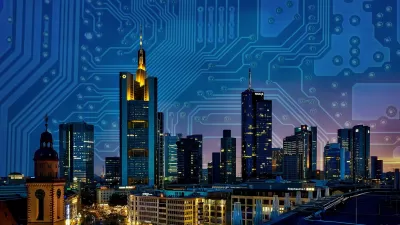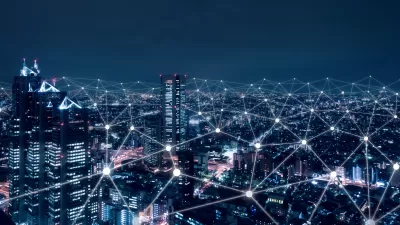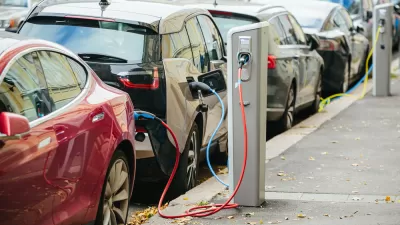As the pandemic forces cities to redefine their priorities, mayors around the country express their plans and hopes for technology and the 'smart city' of the future.

The 'smart city' concept, writes Danielle McLean, promises to "eliminate the hassles of urban life and make cities safer, greener and more efficient." But as the pandemic shifted priorities and technology did not deliver on its bold promises, Smart Cities Dive "wanted to find out what being a smart city means today and how cities are implementing smart-city initiatives throughout the country."
The article details responses from 15 large U.S. cities about their smart city plans, the limitations and challenges they've encountered in implementing technological fixes, and how they approach inequality.
In general, these respondents say the goal of smart cities is to improve residents’ quality of life. Local leaders say they achieve that goal by using technology and data responsibly as tools for decision-making and experimentation.
McLean describes the answers of mayors from around the country who describe the benefits they hope to derive from technology, including more efficient use of city resources, improved quality of life for residents, and enhanced public engagement. Many mayors express the hope that smart cities will prove to be more equitable and 'human-centered.'
FULL STORY: 15 city leaders define a 'smart city'

Planetizen Federal Action Tracker
A weekly monitor of how Trump’s orders and actions are impacting planners and planning in America.

San Francisco's School District Spent $105M To Build Affordable Housing for Teachers — And That's Just the Beginning
SFUSD joins a growing list of school districts using their land holdings to address housing affordability challenges faced by their own employees.

The Tiny, Adorable $7,000 Car Turning Japan Onto EVs
The single seat Mibot charges from a regular plug as quickly as an iPad, and is about half the price of an average EV.

As Trump Phases Out FEMA, Is It Time to Flee the Floodplains?
With less federal funding available for disaster relief efforts, the need to relocate at-risk communities is more urgent than ever.

With Protected Lanes, 460% More People Commute by Bike
For those needing more ammo, more data proving what we already knew is here.

In More Metros Than You’d Think, Suburbs are Now More Expensive Than the City
If you're moving to the burbs to save on square footage, data shows you should think again.
Urban Design for Planners 1: Software Tools
This six-course series explores essential urban design concepts using open source software and equips planners with the tools they need to participate fully in the urban design process.
Planning for Universal Design
Learn the tools for implementing Universal Design in planning regulations.
Smith Gee Studio
City of Charlotte
City of Camden Redevelopment Agency
City of Astoria
Transportation Research & Education Center (TREC) at Portland State University
US High Speed Rail Association
City of Camden Redevelopment Agency
Municipality of Princeton (NJ)





























